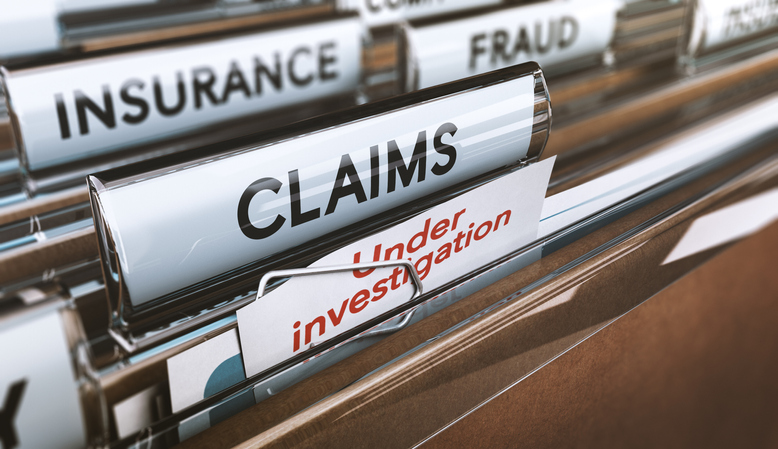
The value of a fraud investigator has never been clearer. According to the U.S. Chamber of Commerce, it is estimated that nearly 75 percent of employees steal from the workplace. Other recent statistics are just as shocking:
According to the Department of Justice, a typical organization loses about 5 percent of its annual revenue due to employee fraud, and litigation resulting from employee misconduct costs employers in the U.S. billions of dollars each year. This must be alarming but ever thought of what is a corporate investigator?
Fraud investigators are also referred to as financial investigators or corporate investigators that expertly examine and scrutinize business operations and allegations of credit card and insurance fraud cases to determine whether individuals or organizations have attempted deception such as embezzlement and misconduct for financial benefit.
These types of investigations vary majorly depending on the industry and field as they work for various industries such as criminal justice, financial institutions, insurance companies, private investigation firms, government agencies, and other organizations.
In addition to internal theft and fraud, fraud investigators are often called upon to do everything from performing due diligence investigations on shareholders and business partners to investigating outside companies to determine whether mergers and acquisitions make financial sense.
From investigating cases of intellectual property theft to performing criminal inquiries and background investigations on new hires, fraud investigator jobs remain incredibly relevant in today’s complex business environment.
Fraud investigators may perform standard corporate monitoring services, such as Internet monitoring, media monitoring, and brand monitoring, and they often perform compliance audits to ensure operations, practices, costs, and procedures are being followed at all business locations and sites. These professionals often investigate businesses that work for or alongside a company to ensure they are conducting proper business practices and are representing the company safely and effectively.
The work performed by fraud investigators may be able to help companies save money; avoid financial disaster; collect evidence to prosecute and/or receive financial compensation, and hire and retain an outstanding management team and workforce.
Fraud Investigators Entering the Corporate World
Fraud investigators are becoming quite commonplace among businesses and organizations seeking to protect their brand, keep an eye on their competition, and maintain current information on their position in the marketplace. Many larger corporations and organizations have internal corporate investigators, while others keep them on retainer. It is common for corporate investigators to travel to a corporation’s business operations across the country and before the globe.
Corporate investigators within an organization or business may be called upon to curtail internal theft and fraud, deal with sexual harassment issues, or keep a close eye on overseas operations.
Many companies turn to corporate investigators to perform this work, as these professionals have the knowledge and skills to expertly and legally uncover and gather the information that may be admissible in court, if necessary.
Fraud investigators serve to protect businesses from financial losses through:
- Due diligence
- Corporate profiling
- Corporate and business analysis
- Asset tracing
- Record research investigation
- Employee integrity
- Pre-employment screening
- Counter surveillance
- Security risk analysis
- Intellectual property infringement
They are also responsible for finding and recovering evidence when dealing with issues such as:
- Fraud
- Breach of contract
- Wrongful termination
- Data theft
- Data misappropriation
- Sexual harassment
- Embezzlement
- Trade secret misappropriation
Education and Training for Corporate Fraud Investigators
Although there is no single educational path to becoming a corporate investigator, the majority of employers require these professionals to possess, at a minimum, a bachelor’s degree in a business-related field. Many fraud investigators also possess graduate degrees in business administration, accounting, fraud investigation, finance, and communications. It is also common for accountants to pursue careers as corporate investigators, let’s look into fraud investigator education in detail
Regardless of the college or university degree, fraud investigators must have some type of formal training in the areas of management structure, business practices, and finance, costs to best understand corporate structures and operations.
Fraud investigators, in general, must be licensed in the state in which they practice. Licensing requirements, although they vary from one state to the next, include minimum education and experience, and many states require these professionals to pass a written examination and pass a background check prior to being licensed.
Salary and Employment Statistics for Corporate Investigators*
According to the Association of Certified Fraud Examiners (ACFE) and Grant Thornton, around 51% of anti-fraud professionals surveyed stated that they have uncovered higher levels of fraud since the pandemic began, with almost around 20% saying that the increase in fraudulent practices was significant.
While anyone would be optimistic in believing that the fraud levels will decrease ever since the outbreak of the pandemic or by the time corporations and offices reopen, around 71% expect the level of fraud affecting their employers to continue to increase over 2022.
It is now that organizations have started to cut travel budgets due to restrictions and safety guidelines during the pandemic with about 39% of anti-professionals saying that their travel budgets had decreased in 2021 and 21% expecting a decrease for 2022 as well.
The Bureau of Labor Statistics reported that around May 2020, BLS indicated median salaries for fraud investigators that earned $53,320 per year making around $25.64 per hour. The median annual wage for occupations of claims adjusters, examiners, and investigators falling under the ambit of fraud investigators was $68,270 in May 2020. However, the median annual wage for insurance appraisers was around $65,550 in May 2020.
*May 2020 US Bureau of Labor Statistics Salary and Job Market Figures for Private Detectives and Investigators reflect state data, not school-specific information. Conditions in your area may vary. Data accessed September 2021.






